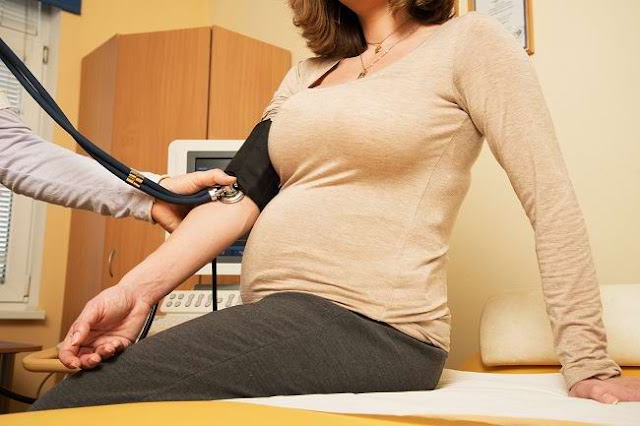Beware of Hypertension in Pregnancy from Now on
Not all women undergo pregnancy smoothly. There are things that can interfere with the health condition of pregnant women. One of them is affected by hypertension or high blood pressure in pregnancy.
Hypertension in pregnancy is actually quite common. About 10 percent of pregnant women experience this condition. With proper treatment, hypertension will not develop or be dangerous, and can disappear after birth. However, if left unchecked, hypertension during pregnancy can cause preeclampsia which is characterized by an increase in blood pressure accompanied by protein in the urine.
A pregnant woman is said to have hypertension in pregnancy if her blood pressure is above 140/90 mmHg. There are several types of hypertension in pregnancy, including chronic hypertension, chronic hypertension with preeclampsia, gestational hypertension, preeclampsia and eclampsia.
- Chronic hypertension. If hypertension occurs since before you are pregnant or before pregnancy reaches the age of five months, then the condition is called chronic hypertension. Most women do not know that they have chronic hypertension because it does not cause symptoms. But this condition will continue when you are pregnant.
- Chronic hypertension with preeclampsia. This is a condition when chronic hypertension is not treated properly or has worsened and continues until pregnancy. Protein is also found in your urine.
- Gestational hypertension. This condition means an increase in blood pressure that is triggered by pregnancy. You experience this type of hypertension when your blood pressure rises after five months of pregnancy, then returns to normal after delivery.
- Preeclampsia. The three conditions mentioned above have the potential to develop into preeclampsia, especially if they are not properly treated. This condition is the presence of high blood pressure which causes damage to organs in the body and the discovery of protein in the urine. Preeclampsia usually occurs after five months of pregnancy. Signs that you are entering this stage are feeling unbearable headaches, nausea, vomiting, shortness of breath, blurred vision, pain in the upper right abdomen, decreased urine counts, decreased platelet levels, and impaired liver function.
- Eklamsia. Eclampsia occurs when pregnant women with preeclampsia experience seizures. This is the worst condition associated with hypertension in pregnancy. When pregnant women experience seizures due to eclampsia, there is generally a decrease in consciousness. This condition can endanger the mother and fetus.
Emerging Negative Impacts
Hypertension in pregnancy that is not handled properly can harm your baby and yourself. The following are various negative effects of hypertension in pregnancy.- Blood flow to the placenta is reduced. This condition can make the baby in the womb does not get enough oxygen and nutrients.
- Stunted fetal growth. Lack of oxygen supply and nutrients to the fetus can inhibit the process of fetal growth, cause babies born with low weight, or born prematurely.
- Premature birth. In order to save the lives of you and your child, sometimes the doctor will suggest the birth of a baby prematurely. You do this by induction or caesarean section. This is done to prevent eclampsia and other complications.
- Placental abruption. This is a condition when the placenta separates from the inner wall of the uterus before labor. If this happens, your placenta will be damaged. You will also experience heavy bleeding. Both of these can endanger the lives of you and your child.
- The baby died in the womb. This condition can occur during pregnancy five months or more. Babies die in utero because they don't get enough oxygen and nutrients they need.
- Development of cardiovascular disease. If you have reached the preeclampsia stage, then you are at risk of developing cardiovascular disease after giving birth, especially if you are giving birth prematurely. But you can minimize the risk by living a healthy lifestyle after giving birth.



Komentar
Posting Komentar